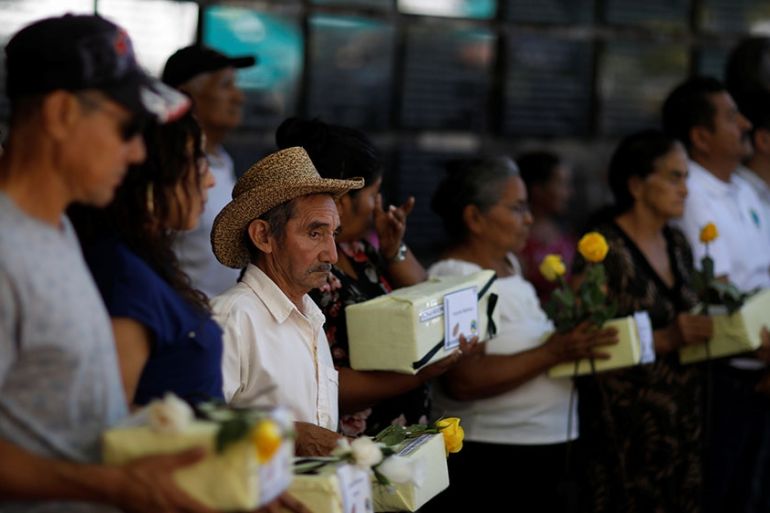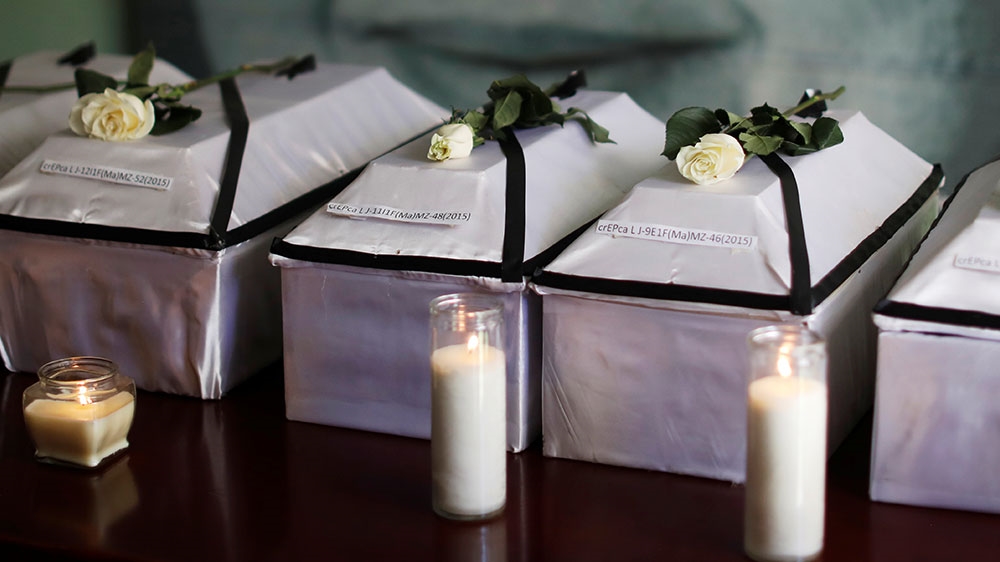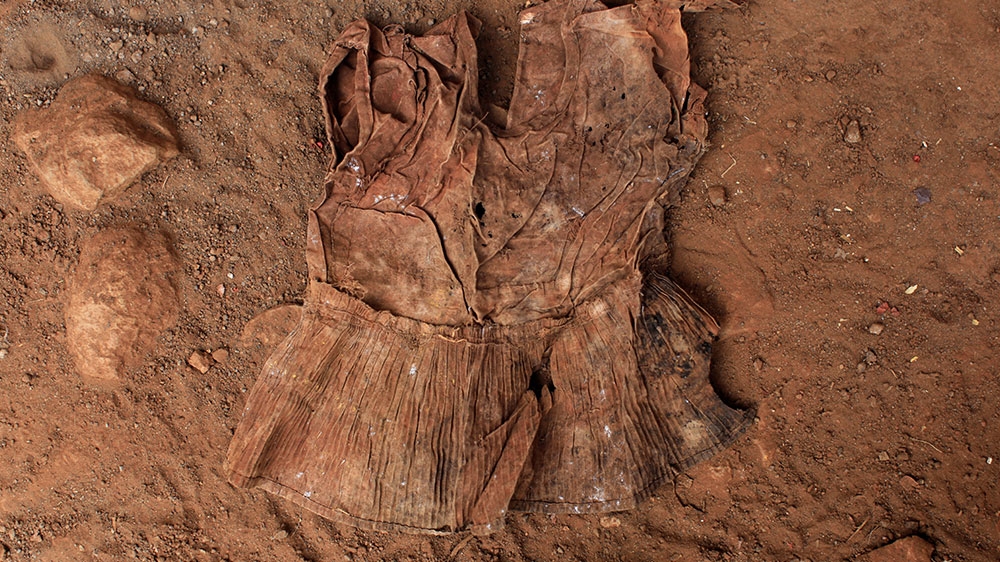El Salvador judge expands 1981 El Mozote massacre case
Judge adds three additional charges to case against military officers accused of carrying out massacre of nearly 1,000.

San Salvador, El Salvador – A Salvadoran judge on Wednesday expanded the case against 17 military officers for the 1981 El Mozote massacre – the worst in modern Latin American history – to include three additional charges of torture, forced displacement and forced disappearance.
Lawyers for the victims say the decision marks a stride forward for recognition for all of the crimes at El Mozote, where nearly 1,000 people were killed.
Keep reading
list of 4 itemsEcuador spat: Trotsky to the shah, Mexico’s long history as home to exiles
Mandela’s world: A photographic retrospective of apartheid South Africa
‘Profoundly unjust’: Reactions to court overturning Weinstein’s conviction
The military maintains that the December 1981 massacre was an armed confrontation between the armed forces and rebel fighters in the early days of the country’s civil war. Victims’ testimony and forensic evidence, however, contradicts this version of events.
“There is more than just proof of assassinations. There is also proof of sexual violence, acts of torture and on top of that, a large number of people who were also displaced,” said Gisela de Leon, legal director of The Center for Justice and International Law (CEJIL), a Costa Rica-based organization that supports cases of transitional justice in the region.
“More than 30 years have passed and many people survived who are still waiting for the people responsible for the acts to be properly punished,” de Leon said.
For the victims of the massacre, the judge’s decision brings them one step closer to getting justice.
The men accused of carrying out the crimes are “rapists, torturers and criminals”, said Jose Amparo Martinez, a 68-year-old survivor whose parents and siblings were killed in the massacre.
The judge’s decision “is good because things keep advancing and every day they are revealing more,” he told Al Jazeera on Wednesday after learning of the expected ruling.
‘Against injustice and impunity’
A group of survivors gathered outside the court on Thursday holding signs saying, “Against injustice and impunity. No to forgiveness and forgetting” and “The murderers want us to forget to ensure their impunity.”
The case revolves around a military operation known as “Operation Rescue” in which a US-backed elite Salvadoran military unit killed nearly 1,000 people, including women, children and elderly, in the mountain town of El Mozote and other surrounding villages in December 1981.
Survivors of the massacre first came forward to refute the government’s official narrative in the early 1990s. In 1992, the government and rebel fighters signed a peace accord agreement to end the 12-year civil war, which left more than 75,000 dead. Soon after, politicians passed an amnesty law which made it impossible for a case to progress in El Salvador.

It was not until the amnesty law was declared unconstitutional by the country’s supreme court in 2016 that victims felt justice was possible.
The amnesty law came five days after the UN published a truth commission that detailed atrocities in El Mozote and many other towns.
Lawyers representing the victims reopened a case in 2016 and it has been ongoing ever since.
Seventeen military officers now stand trial for charges that include aggravated homicide, rape and terrorism. Two of the original 18 defendants named when the case reopened in 2016 have since died. On Wednesday, the judge added former chief of operations for the general staff of the Salvadoran Armed Forces Gabriel Contreras as a defendant. Martinez believes even more officers were involved and should be put on trial.
The 12 defendants who were present at the hearing on Wednesday were given the chance to speak, but they reiterated the official version of events. “I didn’t hear any display of asking for forgiveness, an apology, or regret,” David Morales, who represents the victims through Salvadoran NGO Cristosal, told reporters after the hearing.

To date, the trial has advanced without putting the defendants behind bars under provisional detention. But the judge ordered more restrictions on Wednesday. The 17 military officers will now be required to report to the court once a month. Travel outside the country will be prohibited unless granted special permission.
A final verdict is likely still months away, but survivors sense the end is getting closer.
“The process has gone slowly, but it’s advancing,” said Rosario Lopez, a 72-year-old who lost 24 family members in the massacre. “We lost our homes, our livestock, and of course the human beings whose loss hurts more than the loss of material things. The military officers have always walked free, but we want justice.”
Rep. Ilhan Omar grilled Elliot Abrams about his comments on the U.S. role in El Salvador during El Mozote.
Here's what you need to know about the largest massacre in recent Latin American history, one that Abrams has previously downplayed. pic.twitter.com/Sk0UTpc3pf
— AJ+ (@ajplus) February 13, 2019